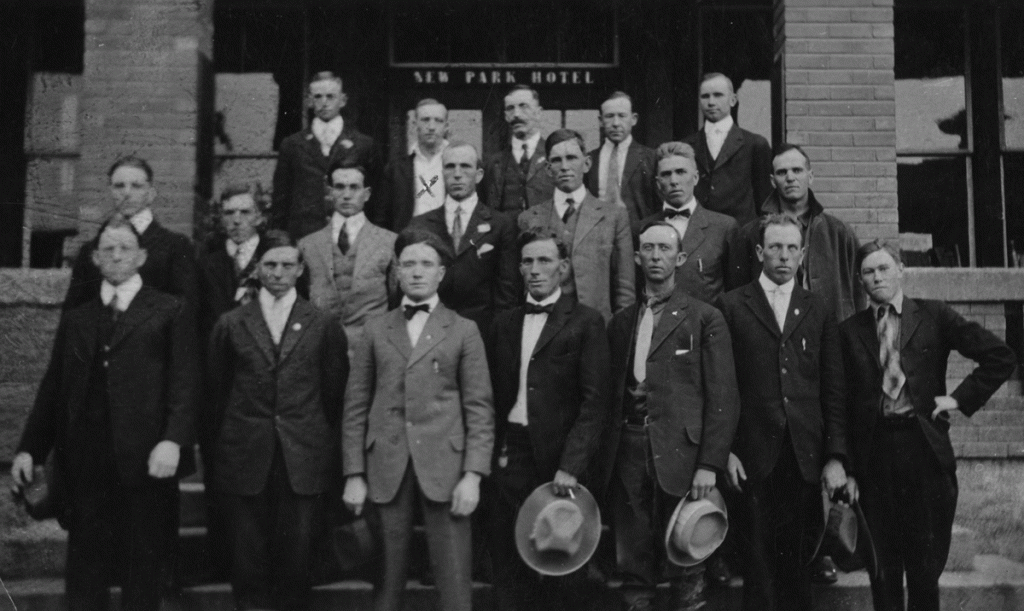In honor of Veteran’s Day on November 11, we’re going to spend the next few weeks profiling some of Park City’s soldiers who left to serve in World War I.
The United States entered the war in April 1917. That May, Congress passed the Selective Service Act authorizing the drafting of 2.8 million men into military service, 140 of whom were to come from Summit County. An article in the Park Record in June 1, 1917 threatened all men between the ages of twenty-one and thirty-one with a term in federal prison if they failed to register for selective service on June 5, the first of three national registration days. No excuse would be accepted and no one was exempt, the story warned.
Registration day passed without protest and a total of 1,109 Summit County men registered. The day’s only hitch was not enough registration forms for the 702 young men who registered from Park City.
Park City native son Henry T. Smith was among those registering for selective service that June. The twenty-one year old Smith was the son of “Dick” Smith, a well-known and respected Irish Catholic silver miner who’d passed away from “miner’s consumption” eight years before, leaving a widow and six children.
Henry was temporarily exempted, but available for military service because his mother Rose and younger sisters were solely dependent on him for their support. At the time, he was working for the Silver King Coalition Company in the Alliance Tunnel, having gone to work at an early age following his father’s death.

Credit: Park City Historical Society and Museum, PCHS Photograph Collection
With the war raging in Europe, his name was drawn for service in mid-May 1918. Henry left Park City by train on Monday, May 27 for Camp Lewis, Washington. Two months later, Private Smith was among 157 other soldiers to leave Camp Kearney, Nebraska for France.
“On the eleventh hour of the eleventh day of the eleventh month” of 1918, hundreds of Park City’s citizens celebrated victory and the end of the brutal war. All day men, women, and children marched, sang, and shouted; whistles shrieked, bells clanged, auto horns blasted, dynamite boomed, bands played, bonfires blazed, and firearms were rapidly discharged.
There was not a more ardent celebrant than Mrs. Rose Smith whose heart was overflowed with joy at the prospect of her boy’s return home. But on November 26, in a cruel twist of fate, came the heartbreaking news that Henry T. Smith had been killed on October 2, 1918 in the Meuse-Argonne offensive. This horrendous, forty-seven day battle, the deadliest in American history, took place between the east bank of France’s Meuse River and Argonne Forest. Over 26,000 U.S. soldiers were killed in the five weeks between September 26 and November 11.
The self-described short and stout young Park City miner with grey eyes and light colored hair, Private Henry T. Smith, United States Army, 28th Division, 109th Infantry Regiment is buried beneath a simple, white marble cross in Plot B, Row 19, Grave 16, Meuse-Argonne American Cemetery in Romagne, France.